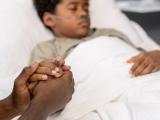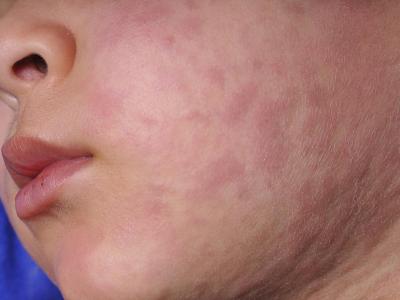The Philippines reported the first novel coronavirus (2019-nCoV) death outside of China last night, as China's cases surged past 14,000, various countries reported more illnesses in their evacuees, and more governments announced bans on travelers from China.
In other developments, the US Centers for Disease Control and Prevention (CDC) yesterday sent out a Health Alert Network (HAN) to clinicians that includes guidance for testing patients with suspected infections and treating those with confirmed illnesses.
Man who died had coinfections
The Philippines Department of Health (PDOH) announced today that a 44-year-old man from Wuhan with a 2019-nCoV infection has died, marking the first such death outside of China.
He also represents the second confirmed case and in the Philippines and is a close contact of the country's first confirmed patient, a 38-year-old woman from Wuhan whose illness was announced on Jan 30.
Both patients are from Wuhan, China, where the outbreak was first identified, and arrived in the Philippines via Hong Kong on Jan 21. The man was admitted to a hospital for pneumonia on Jan 25 after having a fever, cough, and sore throat.
It's not clear if 2019-nCoV is the cause of the man's death, because Philippines health officials said the man was coinfected with Streptococcus pneumoniae and influenza B.
"I would like to emphasize that this is an imported case with no evidence of local transmission, Health Secretary Francisco T. Duque III said in a PDOH news release.
Deaths in China top 300
The World Health Organization (WHO) said in its latest situation update today that 2,590 new cases were reported in China, boosting its overall total to 14,411 cases. The country also reported 45 more deaths, lifting the outbreak's fatality count to 304.
China also confirmed 315 more severe infections, putting that total at 2,110.
In other developments in China:
- People who die from 2019-nCoV must be cremated nearby and no funeral services will be held, according to an announcement yesterday from the country's National Health Commission.
- Work is complete on one of two makeshift hospitals to help with overloaded hospitals in Wuhan, and a 1,400-member staff from China's military will begin treating patients at the 1,000-bed facility tomorrow, Xinhua, China's state news agency, reported.
- China's central bank said it would inject $174 billion into the markets to cushion the country's economy against damage from the outbreak when financial markets open tomorrow after the Lunar New Year break, Reuters reported.
- European Union (EU) countries have sent 12 tons of personal protective equipment to China, following a call last week between China's Premier Li Keqiang and the European Commission president Ursula von der Leyden, according to an EU statement yesterday.
nCoV work-up and treatment
The CDC's HAN yesterday updates guidance since its Jan 17 update including on testing and evaluation, plus treatment recommendations for clinicians. It also provides an update on infection prevention and control specific to 2019-nCoV.
Regarding work-up and testing, the CDC urges clinicians to ask if the patient has fever or lower respiratory tract symptoms such as cough or shortness of breath. Also, they should ask if the patient had traveled to mainland China within 14 days of symptom onset and if they had any contact with a person with a confirmed 2019-nCoV infection.
If patients meet those criteria, health providers should notify infection control staff immediately, as well as the local health department, which will determine if the patient should be considered a patient under investigation (PUI) and tested.
Regarding treatment, the CDC notes that the clinical course ranges from asymptomatic to severe or fatal and that some reports suggest that the illness can worsen during the second week.
Corticosteroids aren't advised unless they are needed for other medical reasons, because they were shown to prolong virus shedding in Middle East respiratory syndrome coronavirus (MERS-CoV) patients.
Those with mild infections might not require hospitalization initially, but they need to be monitored closely in case their condition deteriorates.
"The decision to monitor a patient in the inpatient or outpatient setting should be made on a case-by-case basis. This decision will depend not only on the clinical presentation, but also on the patient's ability to engage in monitoring and the risk of transmission in the patient's home environment," the CDC said.
Evacuees among latest global patients
Some countries that have evacuated their citizens from Wuhan reported more 2019-nCoV infections, including Germany, Singapore, and Japan.
In Germany, 2 of 115 evacuees among a group quarantined near Frankfurt have tested positive and have been taken to Frankfurt University Hospital, according to a statement today from Germany's Red Cross.
South Korea today reported three more patients, including a man who was part of a group of 368 who were evacuated from Wuhan on Jan 31. The others include a Chinese woman who is in isolation and is a family member of an earlier case and a Korean man who returned from the country and was on a flight with the country's fourth confirmed case-patient. South Korea now has 15 cases.
Japan confirmed three 2019-nCoV cases in evacuees, raising its total to 20, according to a Reuters report yesterday. And Singapore reported two more cases yesterday, one of whom involves a Singapore citizen who was evacuated from Wuhan, Channel News Asia reported yesterday, also noting that the other is a Chinese woman from Wuhan.
Elsewhere, other countries in more parts of the world that have already confirmed cases reported more, including:
- India reported a second patient, another in Kerala state who has a history of travel to China, the country's health ministry said today on Twitter.
- The United Arab Emirates today reported its fifth patient, another traveler from Wuhan, Al Arabiya reported yesterday.
The WHO said in its situation report today that so far 146 cases, an increase of 14, have been reported from 23 countries outside of China.
New Zealand ban, WHO tackling 'infodemic'
Joining a growing list of countries that also includes the United States and Australia, New Zealand's government today announced it would temporarily bar all foreigners arriving from China over the risk of 2019-nCoV spread, Reuters reported today. Similar to other countries, New Zealand citizens and permanent residents who traveled to China can reenter if they self-isolate for 14 days.
In other global developments, the WHO said in its situation report today that it has stepped up efforts to battle misinformation about the disease and the outbreak.
"The 2019-nCoV outbreak and response has been accompanied by a massive 'infodemic,'" the WHO said, adding that some of the overabundant information is accurate and some isn't, making it hard for people to find trustworthy information.
It said WHO experts are working 24 hours a day to flag the most common rumors, such as false prevention information, and replace the messages with evidence-based information through all of its social media communication channels.
See also:
Feb 2 PDOH news release
Feb 2 WHO situation report
Feb 1 China NHC statement on cremation
Feb 2 Xinhua story
Feb 2 Reuters central bank story
Feb 1 EU statement
Feb 1 CDC HAN notice
Feb 2 German Red Cross statement
Feb 2 Korea CDC update
Feb 1 Reuters Japan story
Feb 1 Channel News Asia story
Feb 2 India health ministry tweet
Feb 1 Al Arabiya story
Feb 2 Reuters New Zealand story




















